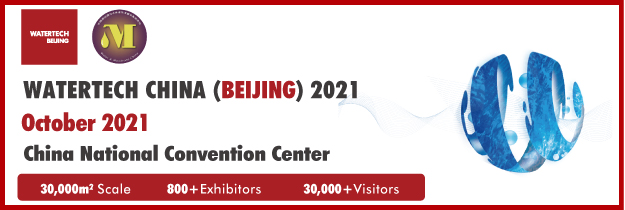resilience against climate change challange
plans to bolster hong kong with additional desalination capacity are moving ahead to provide resilience against climate change challenges and low levels of rainfall.
the hong kong water supplies department (wsd) has commissioned an international construction consortium under a design-build-operate (dbo) arrangement to build the 135,000 m³/day project.
worth hkd9.018 billion (€1.042 billion), the tseung kwan o project will use reverse osmosis (ro) membranes and construction is expected to start this month, with the plant set to be operational in 2023.
the operation contract will be valid for ten years, with the possibility of a five-year extension.
spanish company acciona makes up 20 per cent of the consortium, along with jardine engineering (20 per cent) and china state (60 per cent).
for the operation & maintenance (o&m), acciona will take the lead share (66.5 per cent), followed by jardine engineering (21.5 per cent) and china state (12.5 per cent).
desalination history in hong kong
the desalination plant is part of a wider strategy to reduce long-term reliance upon imported water from the dongjiang river in china.
since 1965 hong kong has imported up to 70 per cent of its total water supply from the dongjiang.
seawater desalination is one of six water resources listed under hong kong’s long-term goals for water security, also including dongjiang water, local yield, seawater for flushing, reclaimed water, and grey water re-use.
feasibility studies were carried out in 2002 and 2007 into the use of ro membrane technology in relation to potable water and hong kong drinking water standards.
a strategic water resource
engineering consultancy black & veatch (b&v) will provide design and construction supervision across the first phase of the project.
b&v also completed hong kong’s first desalination plant in 1976, which was decommissioned in 1981 due to “high operation costs and excessive electricity consumption”, according to the city university of hong kong.
“the proposed desalination plant will provide hong kong with a strategic water resource which is not susceptible to the impact of climate change,” said a spokesman for the wsd.
“the desalination plant will adopt the technology of reverse osmosis, which has been confirmed with a previous pilot study to be effective in producing potable water complying with the hong kong drinking water standards under local conditions.”
expanding acciona’s asia footprint
acciona has been previously involved in construction projects in hong kong.
in vietman, the company was awarded the contract to design and build the nhieu loc thi nghe wastewater treatment plant (wwtp) in ho chi minh city.
in 2016, it was awarded a contract for the putatan 2 brackish drinking water plant in muntinlupa, south of manila, in the philippines, serving a population of six million.








